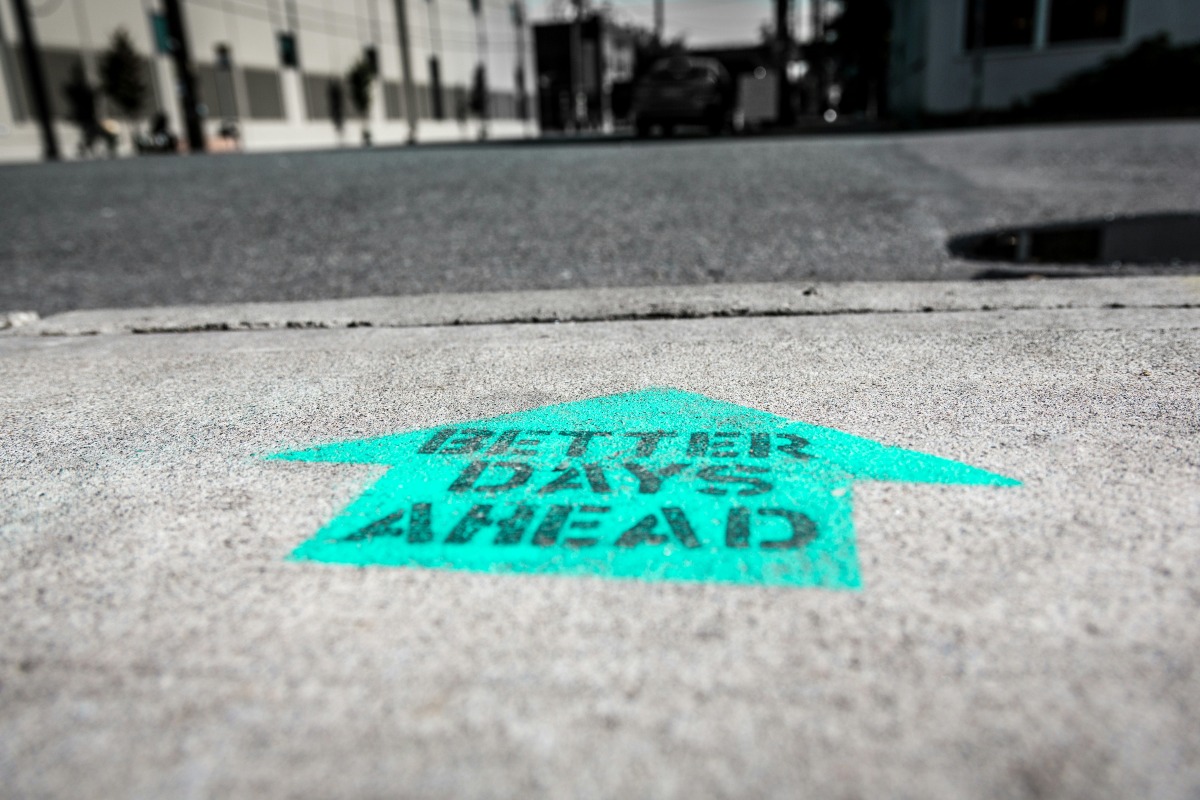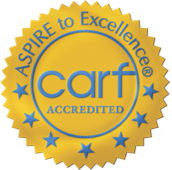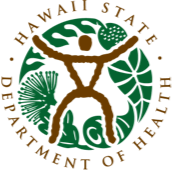Substance Use Disorder (SUD) and Families
Alcohol addiction, drug abuse, or any form of substance use disorder (SUD) is a complicated disease, affecting a person’s mental health and physical health in equal measure. However, in addition to the immediate effects of drug use and alcohol use, the disease can also impact every other facet of daily life. Personal goals and professional responsibilities can be affected, with loved ones and family members being impacted. Despite feelings of isolation common in those living with SUD, drug and alcohol abuse affects the entire family, reshaping family dynamics and bringing emotional distress, stress, and more that can all compromise the well-being of family members and these relationships.
There is no “hiding” the effects of addiction from family members. Rather, understanding how addiction affects the family system is necessary to begin an effective treatment program that supports sober change while working with the whole family to explore healing, change, and forgiveness.
How Does SUD Develop?
SUD is a devastating disease, but it can take time to develop. The disease typically starts with exposure to drugs or alcohol, either through availability at home, acceptance of substance use in social situations, or even an altered perception of their use from others, creating a romanticized view of these addictive substances. This can be especially dangerous for adolescents who may be beginning to experiment with these substances, or whose curiosity may impact their willingness to engage with drugs or alcohol.
However, using drugs or alcohol once does not mean that a person is necessarily addicted. As SUD develops, a person may begin to use drugs or alcohol more frequently. For some, this is due to a perceived positive relationship with these substances, with alcohol use or drug use releasing dopamine in the brain. Others may experience positive effects when using drugs or alcohol as coping mechanisms, letting them push down feelings of anxiety, depression, stress, or other forms of emotional distress, despite mounting negative consequences.
This commonly occurs alongside an increased tolerance to drugs or alcohol, causing a person to need more of these substances to achieve the desired effects, either increasing how much is used or how frequently.
Lastly, continued use of drugs or alcohol can lead to fundamental chemical changes in the brain, with these substances feeling necessary to release dopamine at all, or even feeling they are a necessary part of daily life. A person may find it difficult to stop using drugs or alcohol, even as they realize how it is negatively affecting their health, bringing new mental health problems, or impacting their personal and professional life. At this time, it is necessary to talk to professionals about treatment options and support services for addressing the effects of SUD.
Is Addiction a Family Disease?
Yes, addiction is a family disease, meaning that it affects everyone in a family unit, even those not directly engaging with drugs or alcohol. The emotional strain, stress, and mental health problems created by addiction can lead to many challenges. Family members of those living with SUD often benefit from dedicated treatment themselves to process their own mental health needs, explore new methods of emotional support, and learn more about addiction for a successful long-term recovery.
Just because a person isn’t using drugs or alcohol themselves doesn’t mean that it cannot affect their life. Approaching addiction as a family disease can provide the most robust approach to change for entire families that facilitates healing for all members.
Is SUD Genetic?
There are genetic components to addiction. Those who have a parent or family member who has been diagnosed with SUD can be at an increased risk of developing SUD themselves. However, there are also many environmental factors involved with addiction. A lack of a genetic predisposition does not make someone “immune” to developing the disease, nor does having a family member with a past involving addiction mean that a person is guaranteed to develop addiction themselves.
How Addiction Affects Family Members
Addiction can impact entire families. Addressing the various ways in which addiction can affect the daily life of those living with the disease, as well as those closest to them, is necessary for sustainable, long-term healing. Working with professionals at Hawaii Island Recovery to address the use of drugs and alcohol, their impact on mental health, and educating loved ones is all paramount for overcoming the disease.
How Does Addiction Affect Families?
There is no one, single way in which addiction will impact families. For example, it can fundamentally affect relationships, behaviors, and much more. Some of the common effects of addiction on family members include:
- Anxiety
- Depression
- Chronic stress
- Feeling like they have to “walk on eggshells” at home or otherwise not emotionally safe
- Anger, frustration, or harbored resentments
- Feelings of guilt
- Self-blame for addiction and its effects
- Compromised self-care and personal hobbies
Deterioration of trust and communication between family members is also common and can lead to many challenges in overcoming addiction. This lack of trust can occur between a loved one and a person living with SUD, or between family members themselves, with feelings of resentment, anger, blame, and more all being common.
For those living with SUD, as more time is spent isolating from family members to engage with drugs and alcohol, these relationships can become further compromised, leading to an increase in arguments and tension.
However, families can also be affected not just in their emotional health and relationships, but even financially. Even if family members are not directly purchasing addictive substances, addiction can still impact the financial well-being of each person. Family members having to pick up additional financial responsibilities to help cover bills, rent, groceries, or other necessities is common, and can come with further feelings of distrust and resentment. This is especially true if addiction is affecting professional life, from missed work days to losing a job altogether.
How Does Addiction Affect Families with Young Children?
Young children and young adults can be among the most impacted by addiction. Parental addiction can lead to many developmental challenges for children navigating a difficult home life. For many children, mental health issues are common, from depression and anxiety, to behavioral challenges like acting out in public areas or school, to cope with the stresses of their home life. Distrust can also be a common feeling from an early age, making it difficult to make friends or establish healthy relationships, as their at-home relationships act as poor models for healthy interactions.
Children may also be forced to “grow up” early, giving up their childhood to take on more adult roles at home, which is called “parentification.” Young adults living in a household where addiction is present can also lead to a greatly increased chance of developing addiction themselves later in life, or experimenting with addictive substances early.
How Does Addiction Affect Families with Teenagers?
A teenager living with addiction can also present a unique situation for families. Not only may there be immediate concerns for a teenager’s health, but also concerns over the future, bringing feelings of fear, anxiety, depression, self-blame, guilt, and more to those living with the teenager. Many parents or guardians may also experience helplessness or hopelessness in the face of teenage addiction as their children grow farther apart and continue engaging with drugs, alcohol, or experimenting with even more devastating drugs like opioids, heroin, or other dangers.
However, teenage addiction also affects siblings and others by creating unhealthy relationships. A compromised feeling of authority is also common, or becoming overly protective of teenagers despite negative consequences, academic problems, or even legal problems.
What is the Don’t Talk Rule?
The “don’t talk” rule is the unsaid agreement that families avoid talking about difficult topics or looming stresses to facilitate a facade of normalcy or perpetuate denial about challenging topics, such as addiction, legal problems, and more.
What Are the Long-Term Effects of Addiction on Family Relationships?
Navigating the impact of alcohol or the effects of drug addiction on the family is challenging. However, it will not just “go away” with time. Rather, having even one person living with SUD in a family can create a need for professional treatment programs to address addiction and its effects. There can be many lasting effects of drug addiction on families, each of which can continue to impact the mental and emotional health of all family members. Some of these potential long-term effects include:
- Trust issues, especially between family members or related to years of lies, relapses, and new challenges
- Mental illness, such as persistent anxiety, depression, and more
- Codependent relationships
- Emotional distance and withdrawal
- Compromised communication
- Harbored resentments
Siblings of those living with substance use disorder can also feel pressured to be “perfect,” even leading to “glass child syndrome.” Some siblings can also feel resentment towards those with addiction as they feel ignored or like they have to pick up the pressures caused by the disease. Taking a step into an addiction treatment facility is a great accomplishment, but healing these effects on family members and relationships often takes time. It takes effort and hard work to rebuild trust, with family therapy programs and group therapy being common and effective ways of beginning this long healing process.
Roles Family Members Might Have in A Loved One’s Addiction
Addiction is a family disease, and while not all people may be actively engaging with drugs or alcohol, experiencing withdrawal symptoms, or navigating the direct effects of alcohol or drugs, each family member still has a role to play in recovery. Treating addiction as a family disease and creating a plan that involves all family members is the best approach to overcoming addiction and maintaining sober change.
Enabling and Codependency
Both enabling and codependency are common in families impacted by addiction. Enabling is any behavior in which a person facilitates unhealthy behaviors, intentionally or unintentionally. However, this is much more than just providing access to addictive substances for those living with addiction. Covering financial costs to enable a loved one to compromise their budget to purchase more substances, not holding a loved one accountable for mistakes or promises in sobriety, or making excuses for others to protect them without accountability are all potential enabling behaviors.
Codependent relationships are also common. Codependency is where two people become reliant on each other, with one person with additional needs, such as living with addiction, and another person who cares for them, despite personal cost. Fear of abandonment, low self-esteem, and compromised personal boundaries are all common in these relationships and often involve one person acting as both a “rescuer” and “enabler” to a person living with addiction.
Blaming Other Family Members for Their Addiction
Blame is a common challenge for families overcoming addiction. Many family members may blame each other for how the disease has affected a loved one. However, this can quickly deteriorate trust, oversimplify the situation, and lead to further conflict and compromised communication while stifling the pursuit of otherwise effective treatment programs.
Roles Siblings Can Play in Addiction
There are some unique roles that siblings can inhabit as a result of addiction. These can include:
- The glass child: This is a role where a child feels they must be perfect, and even neglected in the face of a sibling with additional needs, such as addiction, mental illness, legal problems, or a combination. These siblings can feel their needs or identity are being looked straight through, as if they were “made of glass.”
- The enabler: The enabler often acts as a protector for a sibling living with addiction, making excuses for them or taking the blame for others’ mistakes. This can be born out of a genuine desire to care for another, even if its result is destructive.
- The scapegoat: This role is often given to a family member perceived to be the cause of all of a family’s problems, and often ostracizes a family member by placing all blame upon them to avoid confronting other problems or complex issues, even at the cost of a person’s mental health and wellness.
- Lost child: This is a person who avoids family conflict and stresses through social and emotional withdrawal, often looking to be “invisible,” even at the cost of their emotional wellness. They may also adopt people-pleasing tendencies to avoid conflict or confrontation. Compromised social skills, isolation, and more are common.
Identifying If a Family Member Is Developing an Alcohol or Drug Addiction
Recognizing the first signs of addiction is crucial in beginning the healing process. Asking oneself a few questions can help inform if it may be time to contact Hawaii Island Recovery or a local treatment facility to explore potential family therapy programs. These questions include:
- Are there changes in their behavior?
- Have they lost interest in activities they normally enjoy?
- Are there changes in their physical appearance?
- Do they have problems at school or work?
- Are there sudden or unexplained financial challenges?
- Do they have inconsistent daily schedules or leave at odd times without telling others?
- Are they adopting a more secretive lifestyle, withdrawing themselves, locking doors, etc.?
- Do they seem more irritable, angry, or confrontational than before?
Seeking Substance Abuse Treatment for Families
Dedicated family therapy is often necessary to help overcome the effects of drug addiction on families and maintain a healthy, sober atmosphere at home. Finding the right detox, residential, and outpatient program is part of the healing journey, incorporating the family into the treatment and healing process.
Why Family Is Important in Addiction Treatment and Recovery
Family dynamics are complicated. Healing for family members is just as important as overcoming SUD’s direct effects. Family therapy is important in healing and provides benefits such as:
- Professional support, guidance, and education
- Establishment of clear boundaries
- Enhanced mindfulness of your own needs
- Exploration of mindfulness strategies and personal goals
- Development of communication strategies at home
- Initiation of the long process of rebuilding trust
- Exploration of addiction as a disease, not a personal failing
- Acknowledgement of the mental health needs of other family members
Getting Help at Hawaii Island Recovery
There is no replacement for professional care. Hawaii Island Recovery blends proven, evidence-based treatment with family programs and support for holistic, effective healing both inside our walls and at home. Professional support and education for families overcoming the effects of drug addiction on the family, family counseling and mental health support for family members, establishing healthy boundaries at home, and creating strategies to overcome addiction together are all necessary parts of a truly transformative recovery.
Hawaii Island Recovery builds each treatment program up to address the unique needs and goals of each person and family, incorporating the family into each stage of treatment in a way that addresses the unique challenges and lasting effects of drug addiction on families for lasting change.
Addiction is truly a family disease, with each member of the family being affected by the use of drugs or alcohol, as well as having a role to play in effective healing and change. Approaching sobriety and treatment as a family unit and working hard to explore the effects of addiction is difficult, but we at Hawaii Island Recovery are prepared to help address not just the symptoms of addiction but the true extent and familial impact of the disease. Our comprehensive family programs, backed by holistic care, education, and family support, empower entire families to work toward sobriety together. Learn how we can help you take your first step by calling us today at (866) 390-5070.












